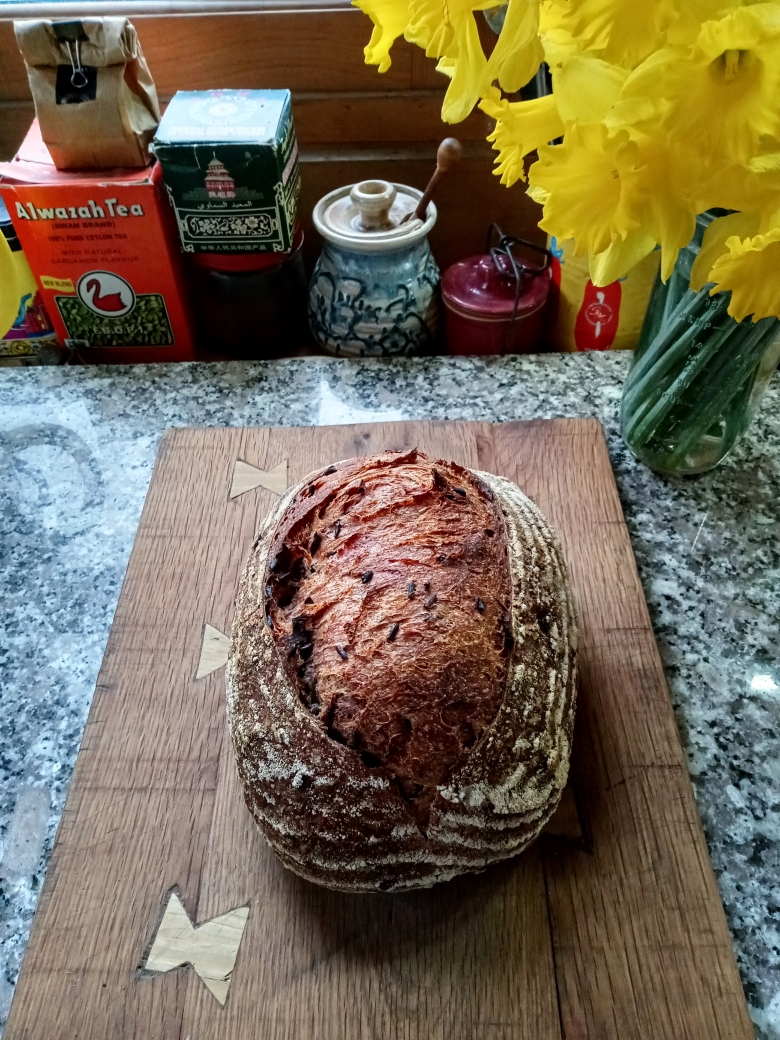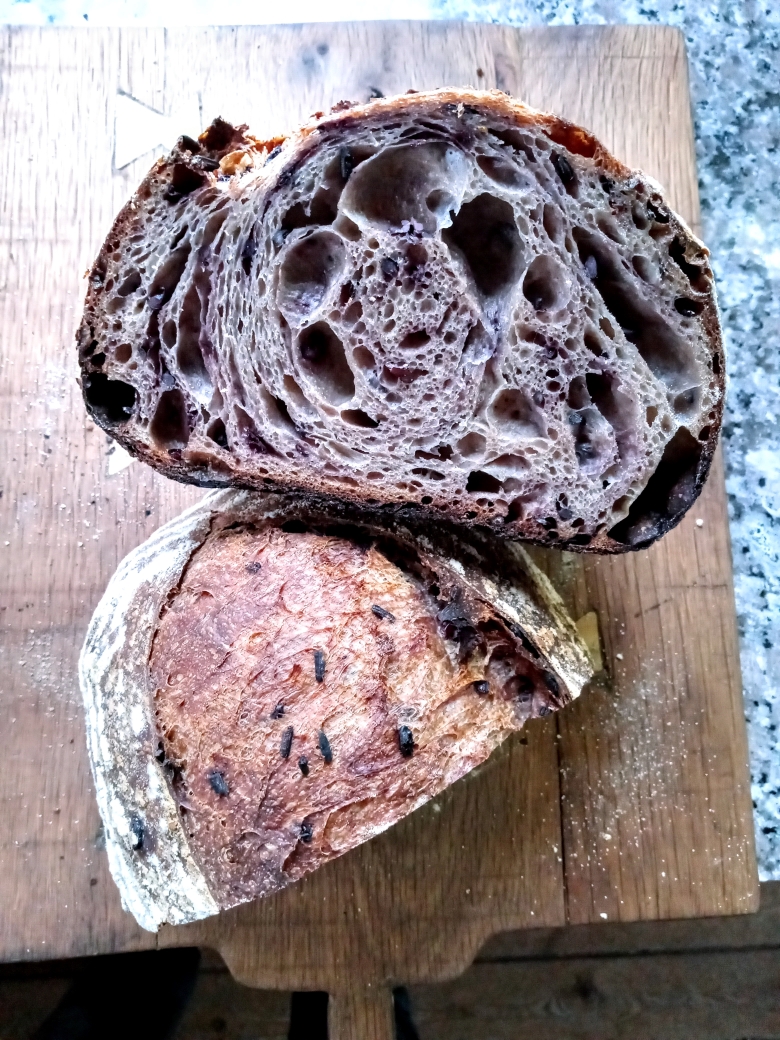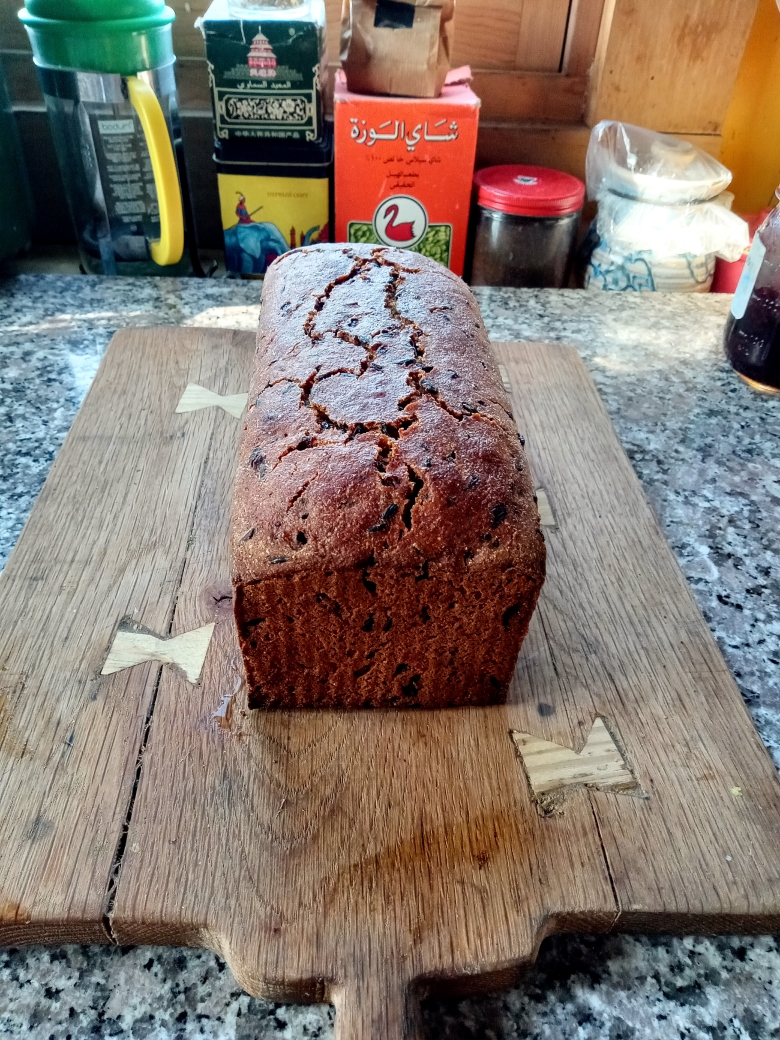
Purple Rice, Two Ways
I came across this purple sticky rice while stocking up on some pantry dry goods recently. I've never heard of it before, but it has a nice rich flavor, and I've enjoyed working it into my recent breads.
My first go-round was a 50-50 white/whole wheat loaf

I think amounts were about
200g Maine Grains hard red spring whole wheat
200g KA special patent
~3tsp salt
50g starter
@ 80% hydration I think
Then added
50g rice cooked milk and water until fully cooked
during stretch and fold
Pretty much standard approach, for me. I think I mixed all the flour together and did maybe a 1-2 hr. autolyse.
I baked at ~550, and it really seemed to help get a nice spring, though there were also some big holes in the center that are slightly more than I'd prefer. The flavor is nice. The rice as expected add a creaminess to the crumb, but the purple rice gives a more dark/complex taste than brown rice.

Enjoying the results with a wheat loaf, I though it might make a nice addition to a rye loaf in place of the traditional seeds.
I loosely followed the approach of a recipe I'd used a week before from The Rye Baker but I modified it so that the dough
was 100% rye flour
750g Maine Grains rye
50g purple rice cooked in milk

Something weird happened with this bread; I appreciate any speculation as to what might have caused it:
After mixing the initial sponge and letting it double, I mixed in the second round of flour and water and let it be for most of the day at room temp. When I came back, it hadn't visibly expanded much, but it was a little hard to gauge in a large bowl, so I just went ahead and added the final flour and rice and put it in the tin for the final rise- This part took crazy long. I was expecting 4-5hrs as it has been decently warm here, but instead, after ~50 hrs (yes, over two days), it was slowly rising, but still not reaching the top of the tin. I finally decided to just bake it. As you can see from the picture, it rose up a bit more during baking, and turned out pretty nice, but I'm confounded as to why it would take so long. The only idea I can think of is that the warm water I added with the second sponge was borderline too hot and maybe killed much of the yeast? This seems unlikely as it felt only warm to the touch, and I poured the water on the fresh flour rather than onto the stage 1 sponge, but it's the only thing that comes to mind.

